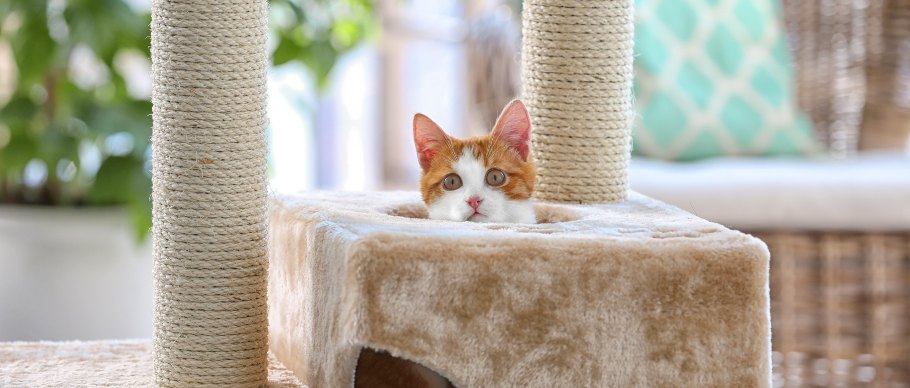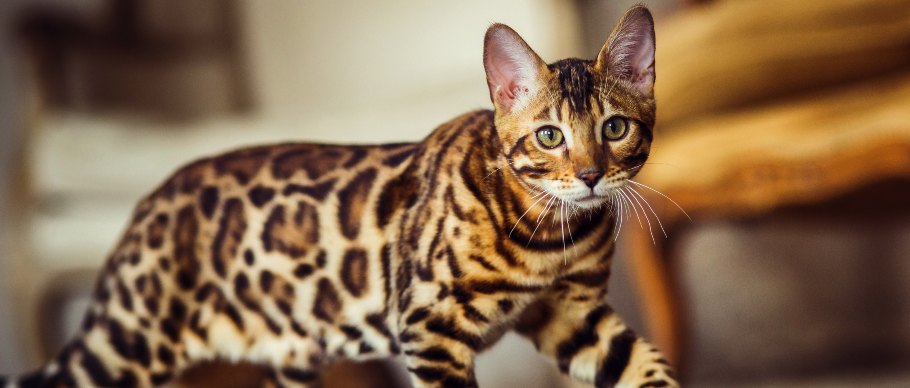Do Cats Get Lonely? 7 Tips for a Happy Home-Alone Kitty
When the house is empty and your cat has the place to themselves, you may imagine them reveling in the alone time and thinking, “Peace at last; the humans are gone!” After all, cats are independent pets who like to do their own thing, right?
Not exactly. In comparison to dogs, cats do often enjoy more solo activities such as self-grooming or discovering their newest hiding spot. This independence could be tied their wild ancestors, who were solitary animals. However, domesticated cats have evolved to crave companionship, often forming strong bonds with humans and sometimes even other pets.
So, do cats get lonely? Because of the attachments they form, the answer is yes; cats can feel lonely! While each kitty has a unique personality and needs, the following signs could indicate a lonely cat:
-
Destructive behavior
-
Loss or increase in appetite
-
Change in litter box habits
-
Excessive or minimal self-grooming
-
Lethargy
However, these behaviors and characteristics could also be due to other factors, so consult your veterinarian if they persist.
Luckily, there are steps you can take to help your cat feel comfortable and content when they’re by themselves. Whether you are going to work or simply running errands, keep in mind that adult cats can generally be left alone for a maximum of 24 hours while kittens under six months should only be left home for four- to six-hour periods.
Tip #1: Fill Food and Water Bowls

Before leaving, feed your cat a meal to ensure they’re satisfied and fill their water bowl with fresh water. You may want to consider adding a few water bowls in different rooms dispersed throughout your home. This way, if your kitty knocks one over or gets extra thirsty, they have an ample supply.
Tip #2: Clean the Litter Box
Cats are big fans of cleanliness—especially when it comes to their litter box! If your kitty’s litter isn’t clean, they may even “go” elsewhere (such as on your carpet) to avoid using a messy or smelly litter box. Therefore, scoop any waste and leave your cat with tidy litter in an accessible area.
Tip #3: Provide Entertainment

In addition to keeping your cat occupied, entertainment offers cats both mental and physical stimulation. Place cat-safe toys throughout the house; balls and toys that don’t have small, breakable parts are good options. However, avoid leaving around toys with strings or batteries when you’re not home to supervise your cat. You should also provide a cat scratching post to help your kitty burn off excess energy, stretch their muscles, and satisfy their urge to scratch. Because cats are observant creatures, consider placing a cat tree near a window to allow your feline friend to watch what’s happening outside!
The television can be another source of entertainment for your kitty! Along with offering some background noise, the TV provides the sound of human voices, which is often reassuring to cats.
Tip #4: Offer a Cozy Bed Spot
Cats spend a majority of their time sleeping—about 16 hours a day, according to Animal Planet. Therefore, to offer the coziest naps possible while you are out, note your cat’s preferred sleeping location and make sure they can get to it when they’re alone. For example, if they love lounging on your bed, leave the door open to your room so they can snuggle up and catch some Z’s! You can also leave behind a blanket, which will not only provide comfort, but the familiarity of your scent, too!
Tip #5: Arrange Cat Care Help

It’s in cats’ nature to thrive off routine. Without it, your furry friend may feel stressed from not knowing what to expect or when to expect it. Therefore, ensure they have a regular feeding schedule and human interaction at specific times throughout the day.
If you are unable to provide your kitty consistency because of your schedule, consider finding a pet sitter or asking a friend to stop in to feed and enjoy cat playtime with your furry friend!
Tip #6: Welcome Another Feline Companion
Some cats flourish with another cat’s company; however, every cat is different. For instance, if you have a friendly cat breed, they will likely enjoy the presence of another kitty.
Keep in mind their age, too. If you have a kitten, they’re typically more open to a new furry friend. However, a mature cat who is used to being the only feline of the house may not be as receptive to lots of young energy. To help increase the chances of your cats getting along, adopt a cat that’s a similar age to your existing cat and ensure proper introductions.
Remember, a new fluffy companion should not be a replacement for you. You can still have a lonely cat if they don’t enjoy enough interaction with humans, too.
Tip #7: Bond with Your Cat When You Return!

When you return home, make an effort to spend time with your feline friend. Curling up with them on the couch, offering treats, or grooming your cat are all bonding opportunities. Spending quality time together regularly will remind your cat that you will always return home to show them attention, especially after being away for a period of time.
Alone Time Can Strengthen Together Time

Though household cats do get lonely because they developed a need for companionship, remember their ancestors were solitary animals. Therefore, it’s in cats’ roots to also enjoy some time to themselves! Not to mention, giving your cat space can even strengthen your relationship because it increases their confidence and helps them value your time together when you are home. It’s all about striking the balance between alone time and together time!
Looking for more insight on raising a happy and healthy kitty? Discover tips for general cat care.








